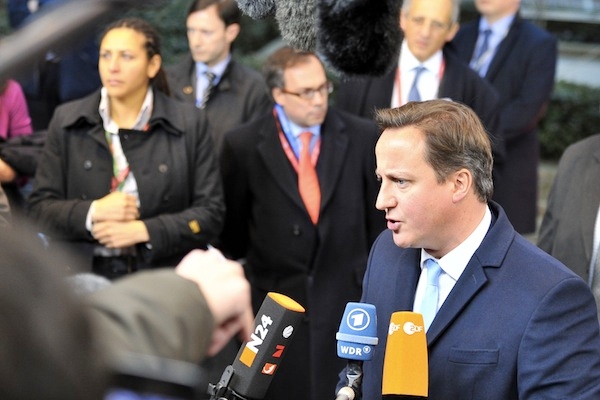Ever since the issue of gay marriage returned to British politics, we have seen the debate become crazier and crazier. When Tony Blair handled this with his Civil Partnerships Act 2004, he did so with care and discretion, mindful of deeply-held opinions on either side of the debate. David Cameron seems to pursue gay marriage as some kind of defining mission statement, and seems to have driven his party quite mad. Nick Clegg released a speech drawing a distinction between the supporters of gay marriage and ‘bigots’. He revoked the b-word, but his tactic was clear. We are witnessing an attempt to bring American-style culture war to a country that has never known it – and is utterly unsuited to it. I look at this in my Telegraph column today.
First, let me get my own position on the record: I agree with Cameron. Religious freedom should be universal, and if some Unitarian churches or liberal strands of Judaism want to marry same-sex couples then the government ought not to ban them. I’m for complete separation of church and state: governments ought not to ban churches from doing anything (or compel them to do anything).
So a quiet amendment to the Civil Partnerships Act would be in order, correcting a legal anomaly. In Britain, the battle for legal equality was won in 2004 and without any histrionics. The battle in Britain is over a word: marriage.
But this time, it’s anything but quiet. Certain Tories want to proclaim their support for gay marriage from the rooftops, as if this was part of a rebranding exercise. Cameron made a point about having the Tory party applaud him for it, as if it were important not to have any dissenters. It’s a tactic straight from the American culture wars playbook: you draw a dividing line, and try to rally more people to your side by articulating a common moral code. But politics in Britain has tended not to be very moralistic: we don’t have party political fights about abortion, etc. Clegg’s proposal to pass gay marriage and defeat the ‘bigots’ involved replacing one form of intolerance with another. Nothing liberal about it.
And the British are liberal, by instinct. We don’t need government legislation to make this point. We are, through Empire, the original multi-ethnic state. We have just handled a monumental influx of immigration without anything like the political backlash seen on the continent. Social attitudes towards homosexuality have been utterly transformed in a very small period of time, with no leadership required from the government. Gay couples can adopt children in Britain (a bigger deal than marriage) and the main opposition to that was on the (intolerant) decision to close down Catholic adoption agencies who disagreed with the principle. Britain has its problems but overall, it is pretty close to the world capital of live-and-let-live. As Billy Bragg put it, ‘sweet moderation: heart of this nation’.
I don’t think Cameron had thought enough about the poison that culture wars inject into public debate. They have incredible power to turn neighbour against neighbour, and are certainly turning Tory against Tory. In the 1922 Committee meeting, an MP from each side had to say ‘please be reasonable’. Culture wars bring out the worst in people. Even Cameron’s supporters feel he has hugely miscalculated: the public does not see a modern, compassionate party. They turn on the TV and see a bunch of Tories tearing each other apart over gay marriage. Culture wars depend on national rancour and intolerance. They were never going to work in a country that can claim to be the most tolerant on earth.







Comments